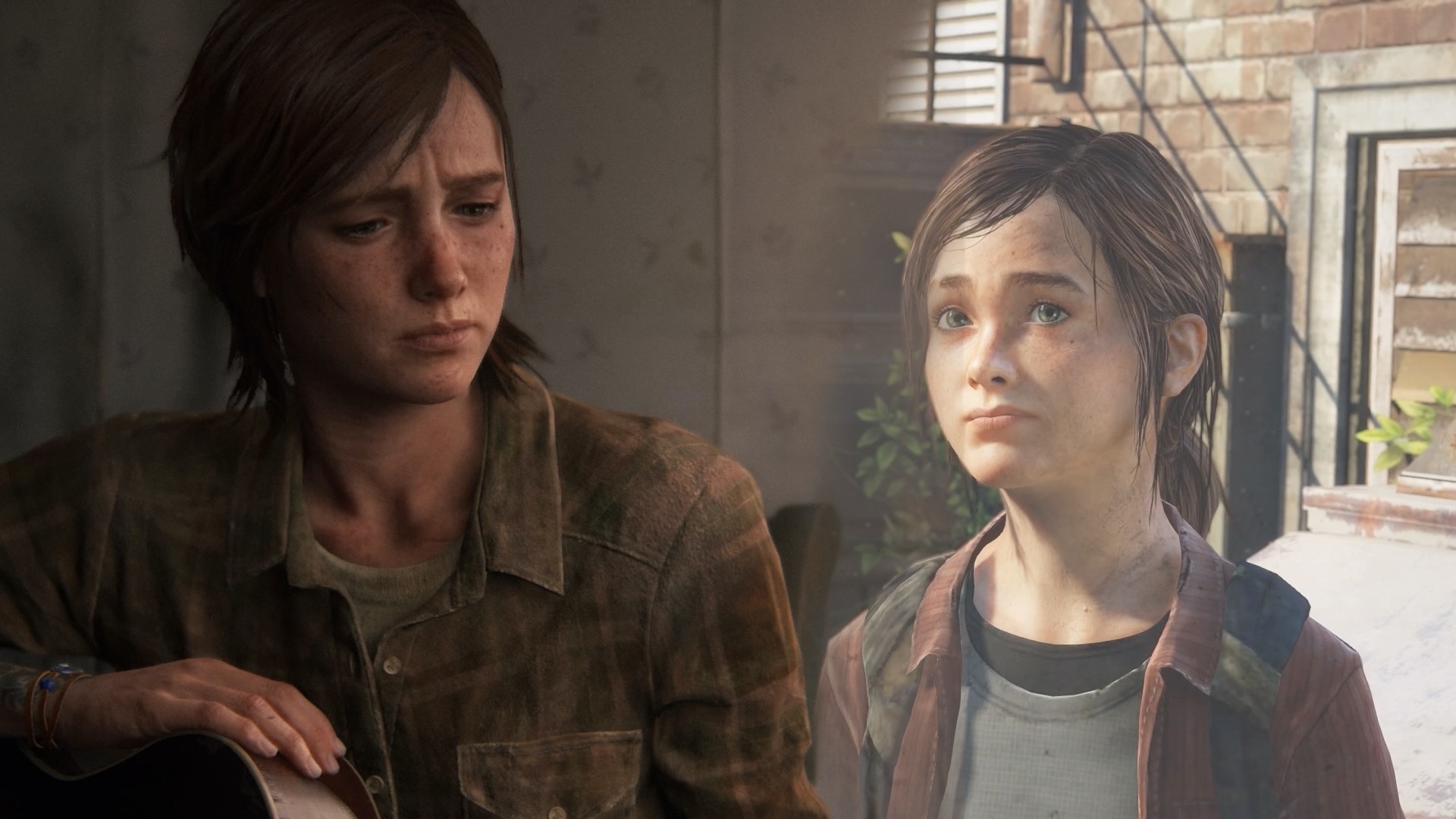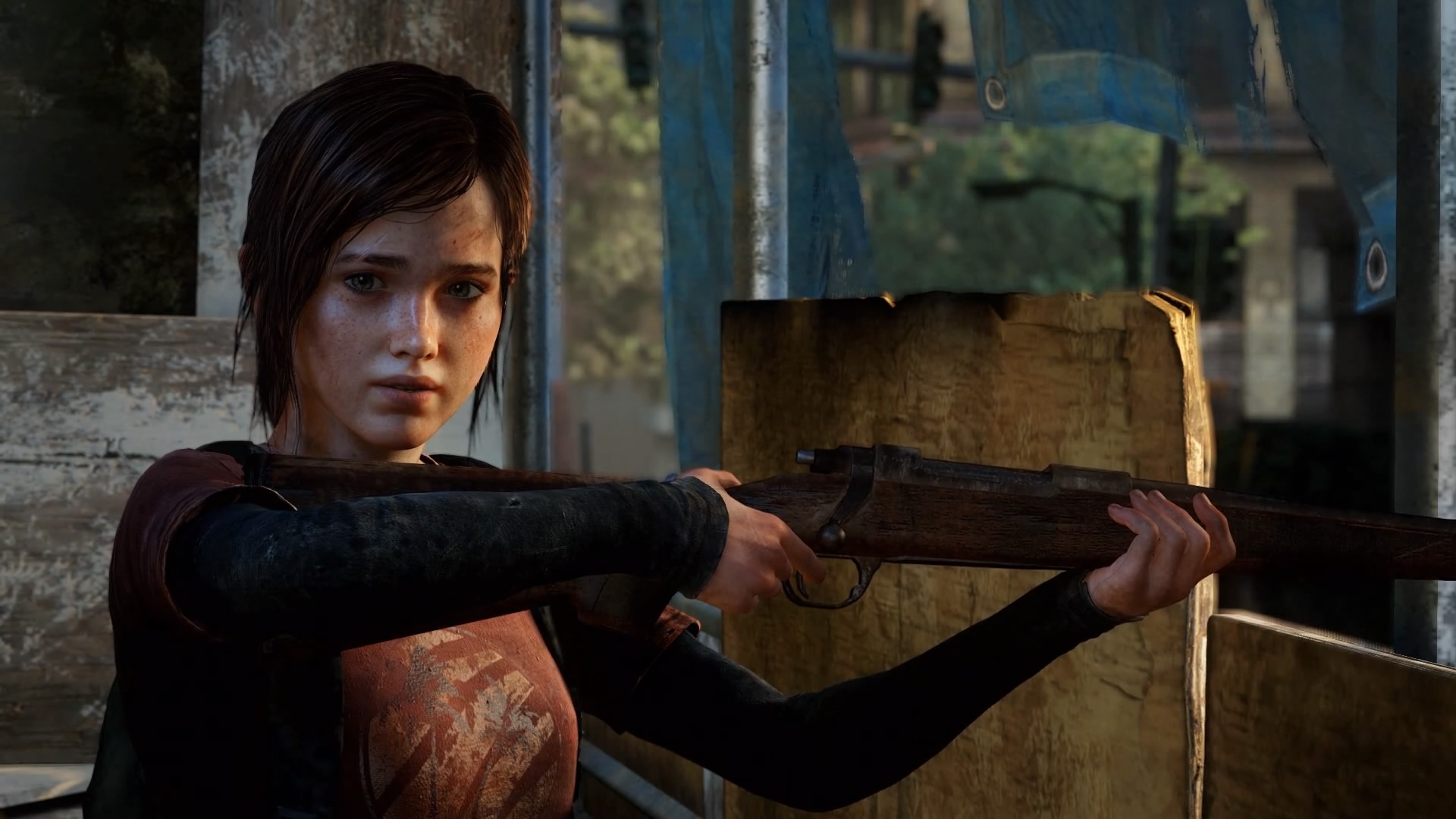I can’t imagine The Last of Us now without Pearl Jam‘s song “Future Days” having played through the end of Part II. Join me as I lay out how I see it as essential to the games’ narratives.
(Index for this blog series: “It can’t be for nothing.” – The Themes of The Last of Us)
To recap: if you haven’t played through the games and aren’t thoroughly familiar with the characters and storylines, please stop reading and go back to your PlayStation 4!
Anachronism?
Many people across the Internet observed that Naughty Dog‘s use of “Future Days” is potentially anachronistic. The album including the song, “Lightning Bolt”, was released on October 15, 2013. “Outbreak Day” is September 26, 2013 in the game’s world. Pearl Jam undoubtedly performed “Future Days” earlier, including its first public performance on July 19, 2013 at Chicago’s Wrigley Field. (This has also been pointed out before me by creator Neil Druckmann in multiple interviews.)
It’s completely plausible that Joel would know the song and how to play it. Enough of that “nontroversy”.
The song
The lyrical transcriptions I’m using in this post are my own. Apologies to Eddie Vedder if I got any of his words wrong!
Some history
To set the stage, “Future Days” entered The Last of Us canon over six years ago. July 28, 2014 was the launch day of The Last of Us: Remastered on Playstation 4. Neil Druckmann and Sony assembled the principal cast for an event called “The Last of Us: One Night Live“. The cast performed some of the cinematic scenes from the game on stage.
What isn’t on YouTube is the added scene Druckmann wrote for Ashley Johnson (Ellie) and Troy Baker (Joel) and that was performed that night. The scene became the Joel and Ellie portion of The Last of Us Part II‘s prologue. Unfortunately, Sony and Naughty Dog hadn’t obtained usage rights to the song, so it couldn’t be used in the broadcast or recording. Let’s all rejoice that they got them!
Verse 1: what the game uses
We only hear the song’s first verse and chorus in the game.
If I ever were to lose you
I’d surely lose myself
Everything I have found here
I’ve not found by myself
Try and sometimes you’ll succeed
To make this man of me
All my stolen missing parts
I’ve no need for any more
I believe
And I believe ’cause I can see
Our future days
Days of you and me
Eddie Vedder’s words speak directly to Joel’s redemption in the first game. They speak to his protection over Ellie as surrogate father. They speak to how Ellie entered Joel’s life as “just cargo” (Tess, The Last of Us) and changed him throughout their odyssey. She saved Joel from his survival-first-and-only existence.
Ellie plays the song twice in early segments of Part II referring to her girlfriend Dina. She doesn’t get past the first two lines. Perhaps she knows the loss is coming. Ellie returns to “Future Days” in Part II‘s epilogue, where we see she can’t really play anymore thanks to the loss of most of two fingers on her left hand.
Ellie now finds a dual meaning in “Future Days”. She has returned to an empty home with Dina and J.J. long gone. Her despair is compounded by a flashback to the last conversation she ever had with Joel. Ellie had the possibility of repairing her relationship with Joel taken by Abby. She has largely lost herself and what ties her to this world.
And yet, “Future Days” has more for us.
Verse 2
Vedder’s lyrics continue:
Back when I was feeling broken
I focused on a prayer
You came deep as any ocean
It’s something out there here
All the complexities and games
No one wins but somehow they still play
All the missing crooked hearts
They may die but in us they live on
The first four lines of verse two go straight at both Joel and Ellie.
Brokenness
Joel’s brokenness at the beginning of The Last of Us is clear. He’s an amoral, ruthless, sadistic cutthroat. He doesn’t think twice about torturing his underworld contact Robert, nor does he offer anything besides a matter-of-fact, “Well, now what?”, after Tess executes him.
His early interactions with Ellie are cold. Joel wants no reminders his daughter Sarah’s death as cataclysm swept his life away. His relationship with his brother Tommy was destroyed thanks to his ruthlessness and vicious take on their new reality. All that really begins to change when Ellie saves his life.
Ellie is also broken. She is an orphan, and starts the story with a cold resistance leader as her guardian. Her greatest fear is being left alone, and it’s her expressing of that fear bluntly to Joel in one of the greatest scenes in the series that really sets the course for their future.
From that point, Ellie begins to heal emotionally. We’re treated to one of the sweetest playable sections of the games: Joel’s sixteenth birthday gift.
A year later, Ellie learns the truth about Joel’s lies about Salt Lake City, and she begins a downward spiral. Ellie’s self-destruction is the story of Part II following her witness of Joel’s brutal death at Abby’s hands. We wonder with little hope as the credits roll where she will go from there.
The world in which they live
Lines five and six: “complexities and games” indeed! “No one wins but somehow they still play.” It’s a perfect description of The Last of Us‘ world.
Part II certainly leads us to believe that the destructive war between the Washington Liberation Front and the Seraphites ends with both groups slaughtered. No winners. Tommy ends the story for now crippled and partially blinded, yet he still wants revenge for Joel. Dina, through no fault of her own, loses her peaceful home with her son and Ellie. The list goes on and on.
The only winners at the end of the story so far are Abby and Lev. They make it to Catalina Island (that’s the significance to the title screen change after completing Part II, confirmed in an interview I saw with Neil Druckmann). Even then, Abby has lost her father, all her friends either to death or estrangement, and faces an uncertain future with the Fireflies whom she abandoned years before. Lev has lost everything he has ever known, except for his friendship with Abby.
Could there ever be a winner in this world? I’m doubtful, but we’ll see what a Part III holds, if it happens.
As game players, do we “win” the games when we finish them? Do we (still) get joy from murdering Abby’s father to save Ellie in the light of future consequences? Did any of us feel victorious when Ellie is about to kill Abby (I did on my first play-through, and decidedly different on the second. More on that in a future post!), or when she returned to what was home?
It’s a powerful statement and question not only for the characters of The Last of Us, but ourselves as well.
Those characters past
“All the missing crooked hearts; they may die but in us they live on.” Every character in the game carries with them those who have died, including by their own hands. Tommy still has nightmares from his marauding days with Joel. Marlene is haunted by her promises made to Anna, Ellie’s mother.
And then there’s Ellie, who tried to have Joel live on through her in a mission of vengeance – and failed. She has lost everyone who has ever been in her life and touched her: Anna, Winston, Riley, Tess, Sam, Henry, Eugene, Joel, Jesse, Maria, Tommy, Dina, and yes to an extent, even Abby.
If Part III happens, Ellie’s solitude while carrying the memories of all of them will likely be a huge story driver.
Verse 3
The final verse to “Future Days” goes like this:
All the promises at sundown
I meant them like the rest
All the demons used to come ’round
I’m grateful now they’ve left
So persistent in my ways
Here an angel, I am here to stay
No resistance, no alarms
Please this is just too good to be gone
I’m not going to get repetitive and echo the themes already discussed. I’ll leave it to all of you to draw out things from the game in verse three, but there are two things I want to discuss. First, “All the demons used to come ’round; I’m grateful now they’ve left.” “Demons” is how the Seraphites refer to the infected, so that’s a nice little tie in.
The larger question of “I’m grateful now they’ve left” ties right back to Ellie and her immunity (post coming!). Will the humanity of The Last of Us ever be free of the Cordyceps plague?
Second, there’s…
“Please this is just too good to be gone”
“Future Days”‘ last line serves two purposes for me and The Last of Us. As I mentioned in my introduction to this series, I’m emotionally invested in the characters. I want Ellie, Abby, and Dina to find their peaces of “this is just too good to be gone” in a future Part III. Given how the first two games ended though, it’s unlikely we’ll ever have a truly happy ending to the rollercoaster which is The Last of Us.
Finally as a player, and I know I’m not alone, at the end of each game (even the brief Left Behind) I’m left wanting for more even though I’ve loved playing. It doesn’t matter whether it’s the first play through or the tenth. I doubt I’ll ever have enough of The Last of Us, and I bet that’s true of most of you.
If you’d like to follow up on my takes, please tweet at or DM me, or email at [email protected]! Please come back for future posts! A breakdown of another song used in a trailer for Part II and briefly heard in the game is next up: “Through the Valley” by Shawn James.
Epilogue
It turns out that Troy Baker performed and recorded the entirety of “Future Days” as Joel. With thanks to the official The Last of Us YouTube page, here it is.
Featured image credit: screen capture by me from The Last of Us Part II by Naughty Dog and Sony Computer Entertainment on Sony PlayStation 4.


